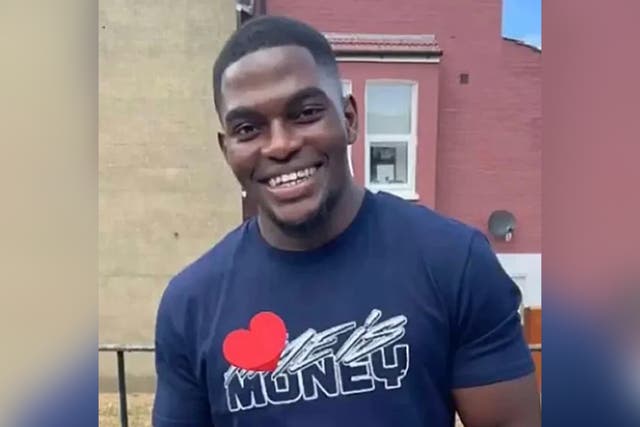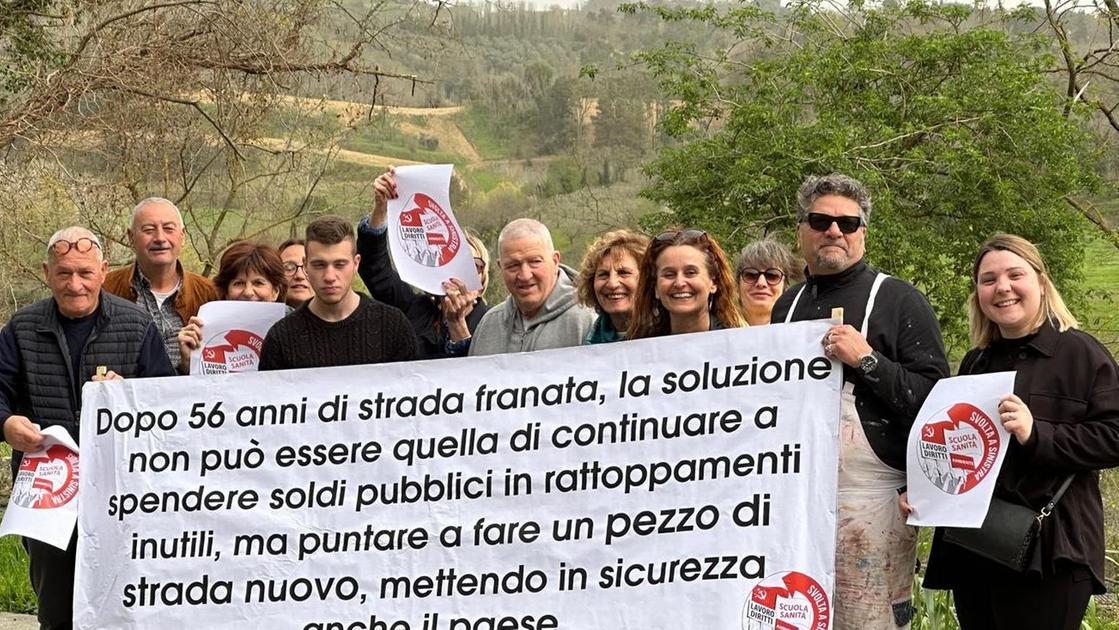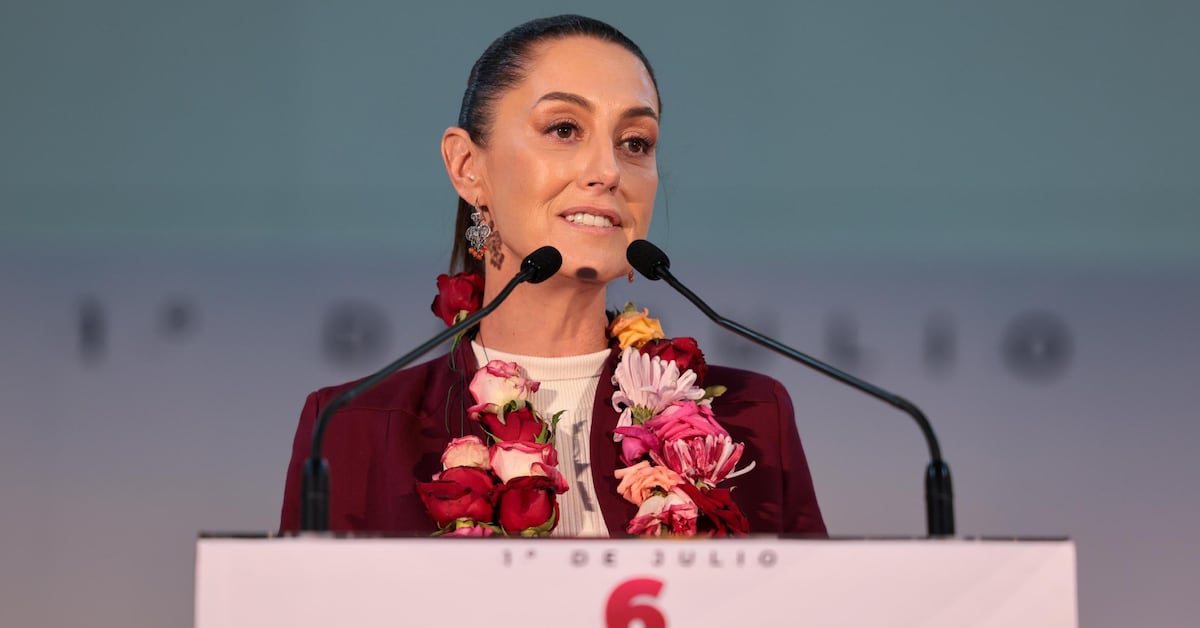Panorama's Chris Kaba Episode: Independent Police Complaints Commission's Ofcom Referral

Table of Contents
The Chris Kaba Shooting and Public Outrage
The death of Chris Kaba, a 24-year-old father-to-be, on September 5th, 2022, in Streatham, South London, following a police pursuit, triggered significant public outcry. The circumstances surrounding the shooting – a single gunshot fired by a police officer during a pre-arrest encounter – immediately raised serious questions about the use of lethal force by the police. The lack of transparency in the initial police statements further fueled public anger and mistrust. Key figures involved, including Chris Kaba's family, legal representatives, and prominent activists, have consistently demanded a thorough, transparent, and independent investigation into the incident.
- Date and location of the shooting: September 5th, 2022, Streatham, South London.
- Circumstances leading up to the shooting: A police pursuit following a firearms alert, ending in a residential street where Kaba's car was boxed in.
- Initial police statements and subsequent investigations: Initial statements offered limited information, prompting criticism for a lack of transparency. The IOPC, the independent body responsible for investigating police misconduct, launched a comprehensive investigation.
- Key criticisms of the police response: Concerns were raised about the justification for the pursuit, the tactics employed, and the decision to use lethal force. Questions remain about whether less lethal options were considered.
Panorama's Investigation and its Findings
The BBC's Panorama program aired a documentary investigating the Chris Kaba shooting, presenting compelling evidence that challenged the official police narrative. The program’s findings, based on witness accounts, bodycam footage analysis, and expert testimony, alleged serious failings in police procedure and potential misconduct. These allegations, detailed in the Panorama documentary, directly contributed to the IOPC's decision to refer the program to Ofcom.
- Key claims about police conduct: Allegations of inadequate training, questionable tactical decisions during the pursuit, and insufficient justification for the use of lethal force.
- Allegations of misconduct and potential breaches of protocol: The documentary highlighted potential breaches of police procedure and raised concerns about the accuracy of initial police statements.
- Interviews featured in the documentary and their significance: Interviews with witnesses, experts, and Chris Kaba's family provided crucial perspectives and evidence.
- The program's impact on public perception: The Panorama documentary significantly impacted public opinion, reinforcing existing concerns about police brutality and the need for greater accountability.
The IOPC's Role and the Ofcom Referral
The Independent Office for Police Conduct (IOPC), previously known as the Independent Police Complaints Commission (IPCC), conducted a thorough investigation into Chris Kaba's death. While the IOPC concluded its investigation and a police officer was charged with murder, the referral to Ofcom centers on potential issues within the Panorama broadcast itself. The IOPC referred the Panorama program to Ofcom because of concerns about the accuracy and impartiality of some of the information presented, prompting a review of its adherence to broadcasting standards. Ofcom, the UK's broadcasting regulator, is responsible for ensuring that programs comply with its code, which includes rules on accuracy, impartiality, and due process.
- The IOPC's investigation timeline and key conclusions: The IOPC investigation took several months, leading to the charging of a Metropolitan Police officer with murder.
- Reasons for the referral to Ofcom: Concerns about whether certain aspects of the Panorama program met the required standards of accuracy and impartiality.
- Ofcom's potential actions: Ofcom could launch its own investigation, potentially leading to sanctions against the BBC if breaches of the broadcasting code are found.
- Legal precedents for similar Ofcom referrals: Past referrals have resulted in a range of outcomes, from no action to significant fines or other sanctions.
Implications for Police Accountability and Media Regulation
The Ofcom referral in the "Panorama's Chris Kaba Episode" has profound implications for both police accountability and media regulation in the UK. It highlights the crucial role of the media in scrutinizing police conduct and holding them accountable for their actions. The investigation's outcome will influence public trust in both the police and the media, impacting future investigations and potentially leading to legislative changes.
- Impact on public trust in the police: The events surrounding Chris Kaba's death and the subsequent investigations have severely eroded public trust in the Metropolitan Police.
- Potential changes to police training and procedures: The case highlights the need for improved training on the use of force, de-escalation techniques, and the importance of transparency.
- The role of the media in holding the police accountable: Investigative journalism plays a vital role in uncovering misconduct and holding authorities accountable.
- The impact on freedom of the press: The Ofcom referral underscores the importance of balancing investigative journalism with the need to adhere to broadcasting standards and maintain impartiality.
Conclusion: Understanding the Panorama Chris Kaba Case and the Ofcom Referral's Significance
The Panorama Chris Kaba episode and the subsequent Ofcom referral represent a pivotal moment in the ongoing struggle for police accountability and media responsibility in the UK. The case highlights the complex interplay between investigative journalism, broadcasting standards, and the imperative to deliver justice. The outcome of the Ofcom investigation will have far-reaching consequences for both police practices and media regulation. Follow the developments in the Panorama Chris Kaba case and stay updated on the Ofcom investigation to learn more about police accountability in the UK and the crucial role of investigative journalism in a democratic society.

Featured Posts
-
 Fan Favourites Shocking Coronation Street Exit What We Know
May 01, 2025
Fan Favourites Shocking Coronation Street Exit What We Know
May 01, 2025 -
 La Flaminia Si Rilancia Dalla Quinta Posizione Alla Seconda
May 01, 2025
La Flaminia Si Rilancia Dalla Quinta Posizione Alla Seconda
May 01, 2025 -
 Neal Pionk Breaking News And Updates From Around The Nhl
May 01, 2025
Neal Pionk Breaking News And Updates From Around The Nhl
May 01, 2025 -
 Earn More Redeem More Cruises Coms New Points Program
May 01, 2025
Earn More Redeem More Cruises Coms New Points Program
May 01, 2025 -
 Claudia Sheinbaum Y Julio Cesar Lideran La Clase Nacional De Boxeo 2025
May 01, 2025
Claudia Sheinbaum Y Julio Cesar Lideran La Clase Nacional De Boxeo 2025
May 01, 2025
